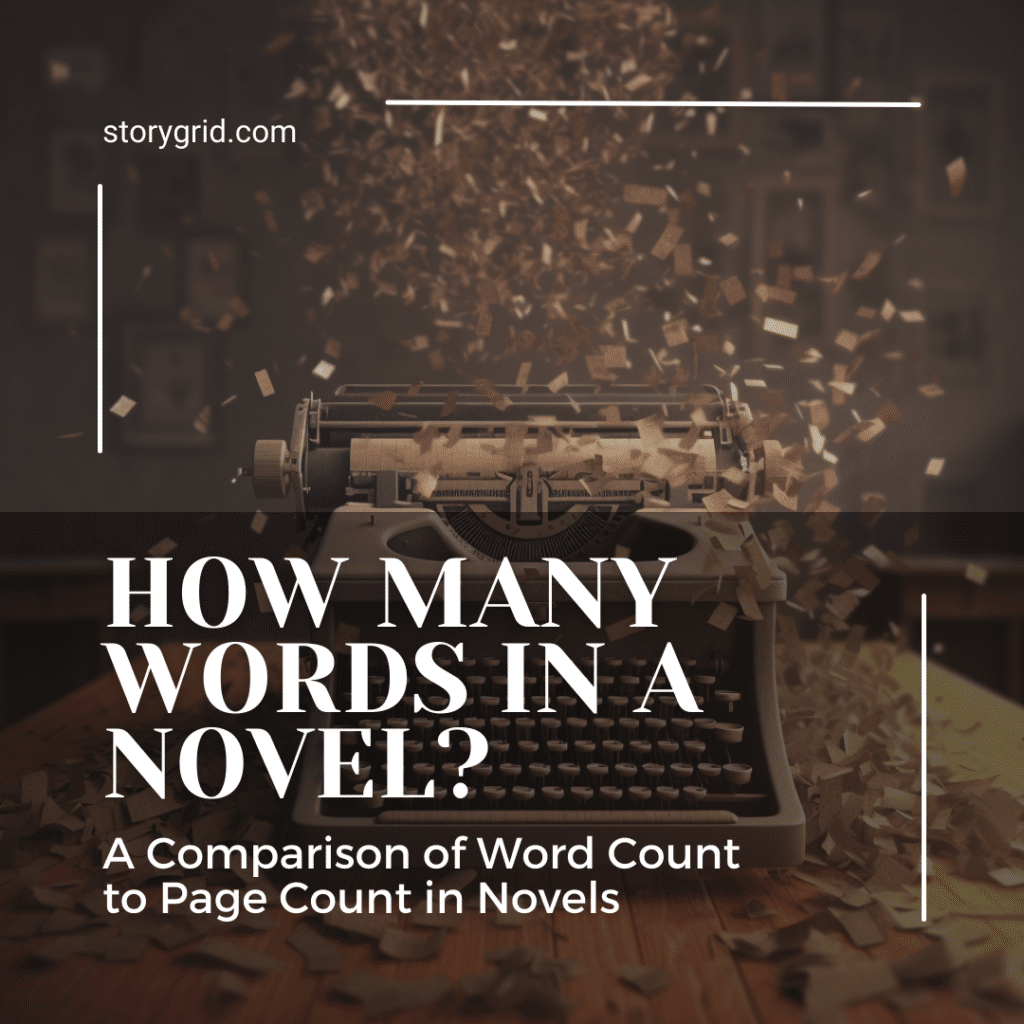As a writer, understanding word count is crucial to planning and executing your novel. Whether you’re a first-time author or a seasoned pro, knowing how many words are in a novel will help you gauge your progress and set realistic goals. In this article, we’ll explore the factors that influence word count, provide examples of novels with different lengths, and offer tips on how to manage your word count effectively.

Factors Influencing Word Count
Several factors can influence the word count of a novel, including:
- Genre: Different GENRES have different conventions when it comes to word count. For instance, fantasy and science fiction novels tend to be longer, while romance and crime novels may be shorter.
- Writing Style: Some writers have a more concise style, while others prefer a more elaborate, descriptive approach. This can significantly affect the word count of a novel.
- Formatting: The size of the page, the font, and the spacing can all impact the reader’s perception of story length. A novel with larger margins or a larger font size will have fewer words per page than one with smaller margins or a smaller font size. This can cause books with multiple editions to have vastly different page counts.
Examples of Novels and Number of Pages
Short Novels or Novellas
A novel of around 100 pages is considered a novella or a short novel. It usually contains around 20,000 to 30,000 words. This length is perfect for a focused story with a small cast of characters and a simple, linear plot. Examples include the following:
- The Old Man and the Sea by Ernest Hemingway (approximately 26,000 words or 50–180 pages): This Pulitzer Prize-winning novella follows the story of an old fisherman and his epic battle with a giant marlin.
- The Little Prince by Antoine de Saint-Exupéry (approximately 27,000 words or 90–120 pages): This novella, originally translated from French, follows a young prince as he visits various planets. The story is told from the perspective of an aviator who encounters the prince after a plane crash in the desert.
- Animal Farm by George Orwell (approximately 29,000 words or 80–140 pages): This allegorical novella uses a group of farm animals to satirize Stalinist Russia and critique totalitarianism.
- Of Mice and Men by John Steinbeck (approximately 30,000 words or 70–120 pages): This novella tells the story of two migrant workers looking for a job during the Great Depression in California.
Novels
A novel typically contains between 40,000 and 90,000 words, an ideal length for many genre fiction works. This length is common for many contemporary works of fiction and provides ample space for complex plots and character development. Examples of novels include the following:
- The Great Gatsby by F. Scott Fitzgerald (approximately 47,000 words or 160–240 pages): This classic American novel explores themes of wealth, social class, and the American Dream in the Roaring Twenties.
- The Hunger Games by Suzanne Collins (approximately 99,750 words or 370–390 pages): This dystopian young adult novel follows the story of Katniss Everdeen, who is forced to participate in a brutal televised competition where teenagers fight to the death.
- To Kill a Mockingbird by Harper Lee (approximately 100,000 words or 320–390 pages): This Pulitzer Prize-winning novel explores themes of racial injustice and moral growth through the eyes of a young girl in the American South.
Long Novels
A long novel typically has 100,000+ words. This length is suitable for more intricate stories, often reserved for epic works of fiction with sprawling narratives, extensive world-building, and a vast array of characters. Examples of long novels include:
- A Game of Thrones by George R.R. Martin (approximately 298,000 words or 690–720 pages): The first book in the A Song of Ice and Fire series, this epic fantasy novel introduces readers to the complex and deadly world of Westeros, where noble houses vie for power and control.
- The Goldfinch by Donna Tartt (approximately 300,000 words or 770–790 pages): This Pulitzer Prize-winning novel tells the story of a young man named Theo Decker whose life is changed forever after a terrorist attack at an art museum.
- War and Peace by Leo Tolstoy (approximately 587,000 words or 1100-1400 pages): This classic Russian novel explores the lives of several aristocratic families against the backdrop of the Napoleonic Wars.
Tips for Managing Your Word Count
- Don’t stress about hitting an exact number: While it’s important to have a general idea of your novel’s word count, don’t get too caught up in hitting a specific number. Focus on telling the story you want to tell, and trust that the word count will work itself out.
- Outline your story: Creating a detailed outline can help you visualize your novel’s structure, making it easier to gauge your word count and identify areas where you may need to add or remove content. Check out the Story Grid NARRATIVE PATH article for help outlining a story.
- Edit and revise: During the editing process, focus on tightening your prose, eliminating redundancies, and ensuring that every word serves a purpose. This can help you manage your word count and improve the overall quality of your novel.
- Set a daily or weekly writing goal: Establishing a word count goal can help you stay on track and maintain momentum throughout your writing process.
Conclusion
Understanding word count and the length of your story is essential for writers. With this guide, you should now have a better idea of how many words are in different types of stories, along with examples to help you plan your own writing project. Remember to consider factors such as GENRE, formatting, and writing style, and use the tips provided to manage your word count effectively.
Share this Article:
🟢 Twitter — 🔵 Facebook — 🔴 Pinterest
Sign up below and we'll immediately send you a coupon code to get any Story Grid title - print, ebook or audiobook - for free.
(Browse all the Story Grid titles)